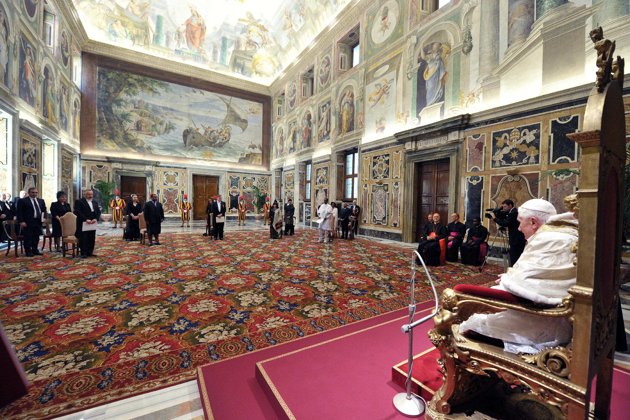Benedict XVI spoke with five new non-resident ambassadors to the Holy See, including Malaysia’s first ambassador. The Pope touched on a variety of points, ranging from poverty, to human development, to religious freedom.
The ambassadors were from Ethiopia; Ireland; Fiji; Armenia; and Malaysia.
Among his points, he noted that the “global economic crisis has caused an increasing number of families to live in precarious conditions. When the manufacture and increase of needs leads us to believe in the possibility of unlimited enjoyment and consumption, the lack of the means necessary to achieve these ends leads to frustration.”
The Pope also spoke against situations where poverty and enormous wealth exist side by side, cautioning that “a sense of injustice arises which can become a source of rebellion. Therefore it is necessary for States to ensure that legislation does not increase social inequality and that people can live dignified lives.”
He spoke of human development as necessarily involving the whole of the person, not just economic factors.
“Experiences such as micro-credit, and initiatives to create cooperative associations show that it is possible to harmonize economic objectives with social necessities, democratic government and respect for nature,” the Pontiff affirmed. “It is also advisable to encourage manual work and to promote an agriculture which works in favor of local people, viewing these activities with the respect they deserve.”
Benedict XVI also spoke of “another kind of poverty: the loss of reference to spiritual values and to God.”
VATICAN CITY, MAY 4, 2012 (Zenit.org)





